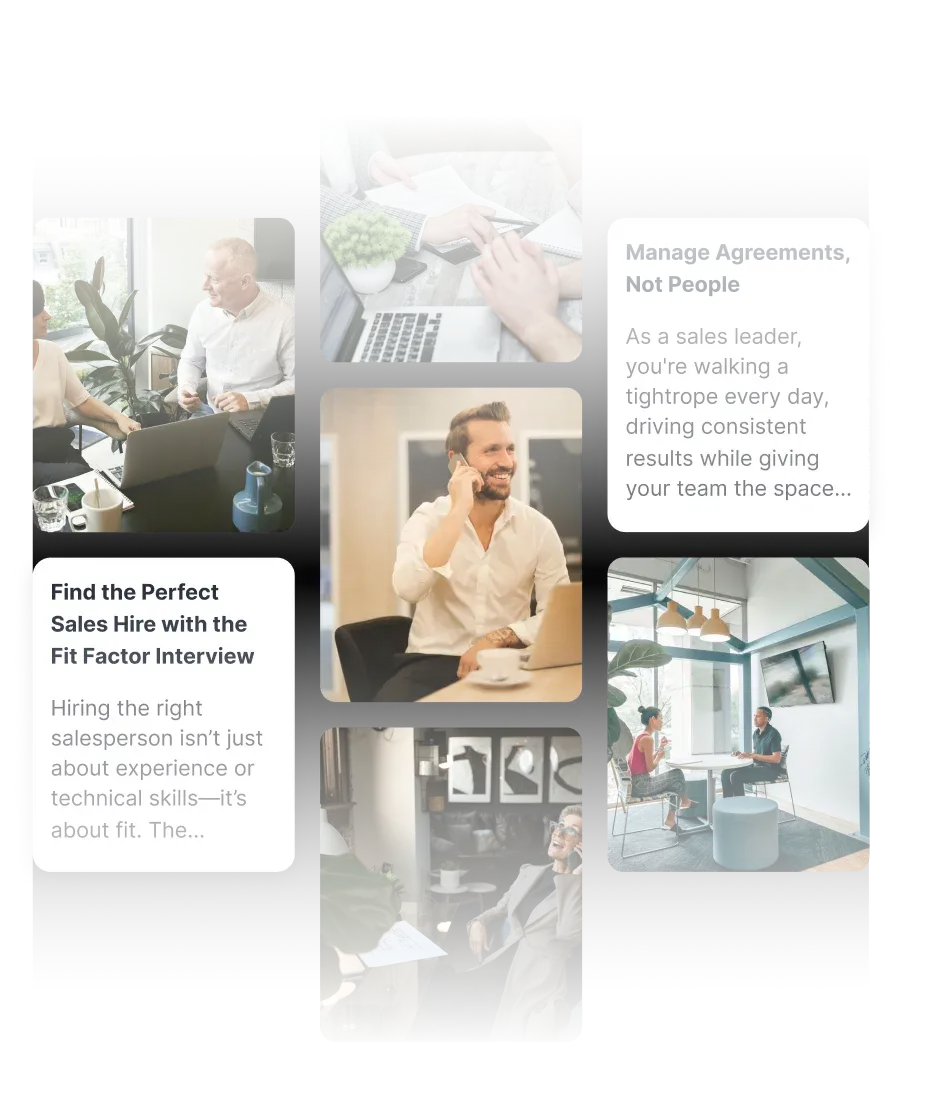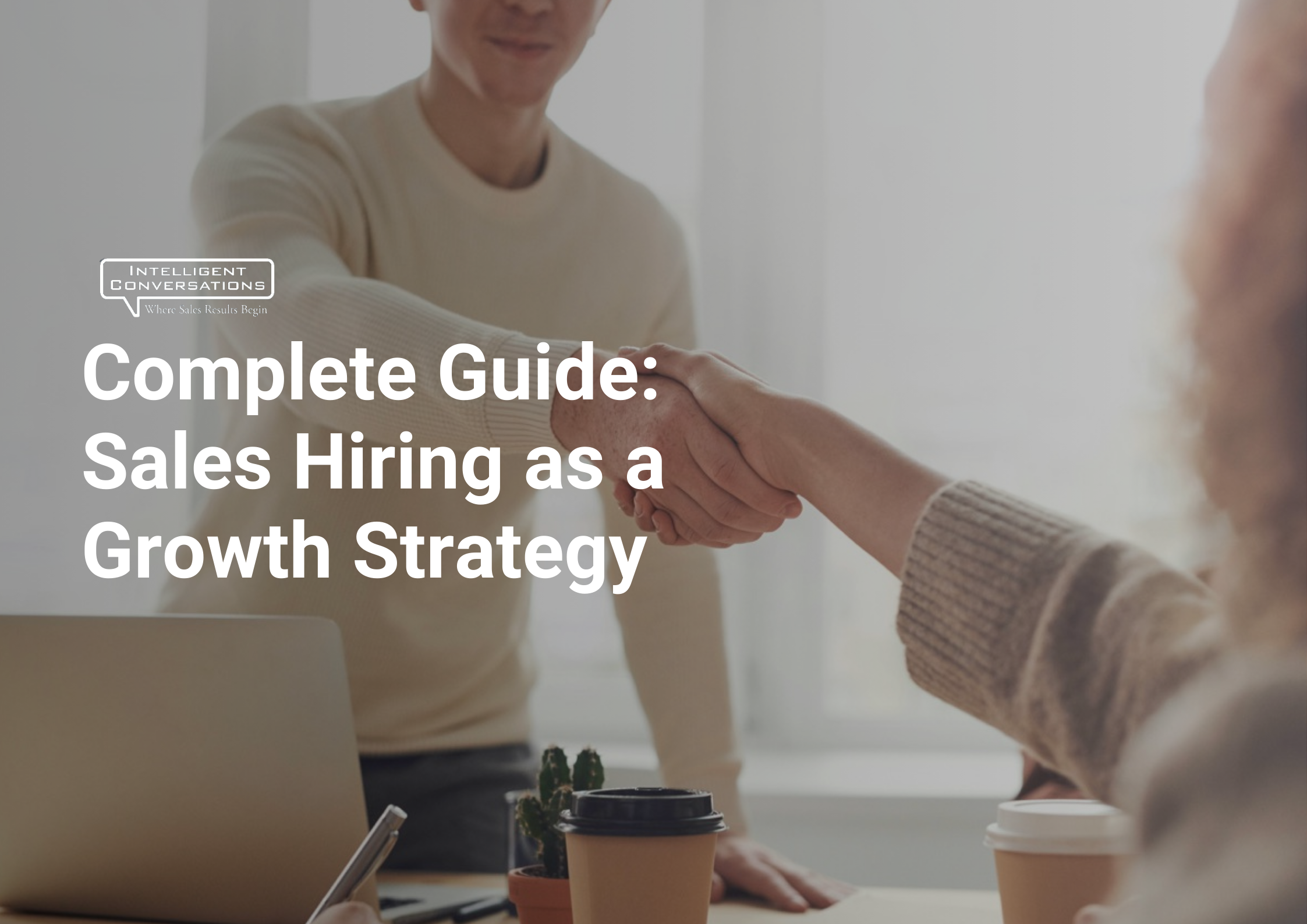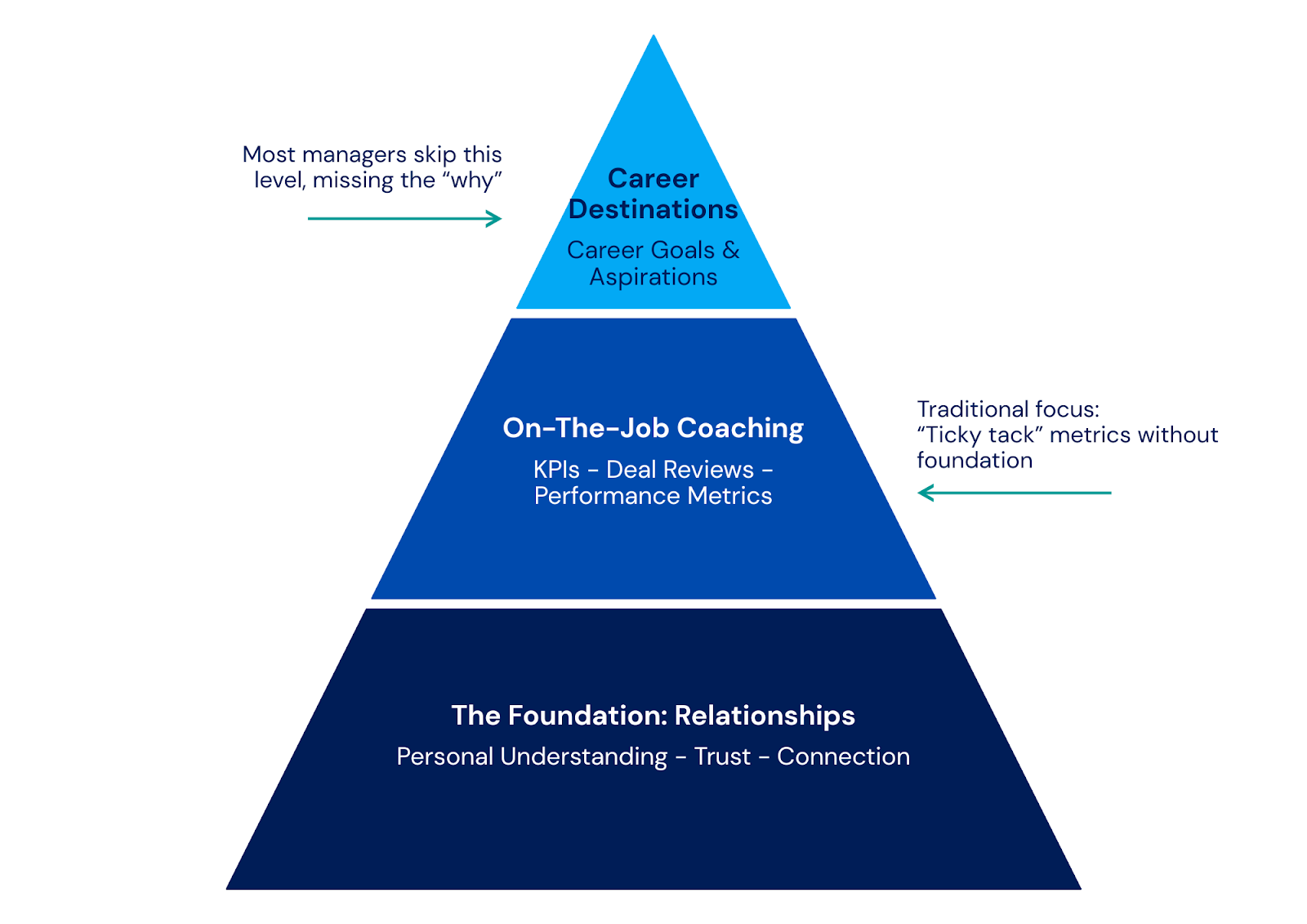Year-End Sales Team Assessment: Who to Keep, Coach, or Cut Before Q1
The decisions you make about your team in the next two weeks will determine whether you dominate or ...
How to Prepare for Q1 Sales Success: December Planning Guide
January 2nd arrives whether you're ready or not.
Yes, And vs. But: How Your Leadership Mindset Shapes 2026 Results
Your rep brings you a deal with non-standard terms. The prospect wants a longer implementation timeline, ...
The Coaching Triangle: Assessing Your Team Relationships Before the New Year
January 2nd. Your inbox loads with an email notification. Your top performer, the one who crushed quota ...
Pipeline Health Check: 5 Questions Every Sales Leader Must Ask Before January
You look at your CRM dashboard and see $2.4 million in the pipeline. The numbers look good. You feel ...
The Sales Leader's Q4 Planning Guide: How to Prepare Your Team for 2026 Success
Most sales leaders treat December as a "coast to the finish line" month. The team's exhausted, the ...
Building a Revenue Team Culture - From Silos to Collaborative Success
What if every employee in your company thought like a revenue generator? Not just the sales team, but ...
Stop Interdepartmental Wars That Kill Sales Deals
Your biggest competitor isn't in the market. It's in your building.
Why Smart CEOs Stay Out of Their Own Deals
The deal was 99% done. Then the CEO "helped."
C-Suite Sales Impact: Role-Specific Strategies That Actually Work
Your title gives you the power to accelerate sales or accidentally destroy them.
Executive Sales Blind Spots: How Your Background Can Hurt Revenue
"Where you stand depends on where you sit" is the hidden force shaping every sales decision you make as ...
How Executives Can Boost Sales Without Getting in the Way
"How do I support our sales without alienating my sales team or jeopardizing our opportunity to win the ...
The Executive Leadership Playbook: How C-Suite Leaders Drive Sales Growth
Most companies treat sales as a separate department—something that happens "over there" while the rest ...
The Recruiting Strategy That Builds Winners
Building a coaching culture isn't just about what happens after a hire; it's about attracting the right ...
How Great Sales Managers Develop Future Leaders
As a sales manager, your legacy isn't defined by your personal numbers, the deals you helped close, or ...
How to Measure Coaching Success
In a competitive sales landscape, consistent performance and career growth don’t happen by accident, but ...
Coaching for Development vs. Coaching for Production
In today's hyper-competitive business landscape, the difference between mediocre and exceptional sales ...
Manage Agreements, Not People
As a sales leader, you're walking a tightrope every day, driving consistent results while giving your ...
A Sales Manager’s Blueprint for Coaching and Accountability
In today's sales environment, leaders face unprecedented challenges—hybrid teams working across time ...
How to Build an Effective Onboarding Program That Drives Results
Hiring the right salesperson is just the beginning. Without a solid onboarding process, even top talent ...
Final Interview Questions That Reveal the Best Candidate
Hiring the right salesperson isn’t just about assessing skills—it’s about finding someone who aligns ...
Optimize Your Sales Hiring with the 6-Minute Phone Screen
Hiring the right salesperson is about finding someone who can thrive in your sales environment. That’s ...
How to Use Sales Assessments to Predict Success Before You Hire
What if you could predict a candidate’s success in your sales role before you even hire them? This is ...
Find the Perfect Sales Hire with the Fit Factor Interview
Hiring the right salesperson isn’t just about experience or technical skills—it’s about fit. The ...
How to Find the Right Candidates for Your Growth Strategy
Your ability to find and attract top-tier salespeople directly impacts your bottom line. Period.
Sales Hiring as a Growth Strategy
Hiring great salespeople has never been more critical—or more challenging. The stakes are high. A single ...
How to Build a High-Performing Sales Team
Every CEO dreams of a sales team that delivers results seamlessly—hitting targets, closing deals, and ...
Balancing Short-Term Wins and Long-Term Growth in Sales Coaching
Every sales manager knows what it feels like to train for a marathon while competing in daily sprints. ...
No-Excuse Culture: How to Foster Accountability on Your Sales Team
In sales, the difference between good and great often comes down to one crucial factor: accountability. ...
The 90-Day Sales Manager Playbook: How to Start Strong and Succeed
As a new sales manager, your first 90 days will either set you up for success—or create challenges that ...
Avoid Job Posting Clichés
Intelligent Conversations is not a salesperson recruiting company. We teach companies a different way to ...
The Importance of Questions
Just as salespeople can easily get wrapped around the gears of talking about features and benefits, ...
Coaching to Reach Decision Makers
It is obvious that more sales will happen if your team starts the conversation with people who have the ...
Psyched to Sell
How excited is your sales team? How passionate are they about your product or service? There's nothing ...
Cost Per Opportunity
As the old saying goes, management gets what management measures. What would happen if you put some ...
Sales Process Vs. Sales Methodology
How consistent is your sales process? Does every sales person understand what they need to do to achieve ...
Re-framing Pricing Conversations
Salespeople run into many common challenges and a difficult one to artfully overcome is the pricing ...
Remote Selling In Era of 'Social Distancing'
Here are two videos I posted on LinkedIn as the coronavirus forced salespeople to work remotely. The ...
Is the MVP of Your Sales Team like Giannis Antetokounmpo?
Who is the MVP of your sales team? Milwaukee, Wisconsin, where our office is headquartered, happens to ...
Self Limiting Beliefs in Sales and How to Coach Through Them
One of the common stumbling blocks we see holding salespeople back is self-limiting beliefs that prevent ...
Creating a Client Scorecard
We have been working with a lot of our middle market clients lately on implementing or refining ...
Coaching Ruts and How to Get Out of Them
Every sales manager we talk to says, "I coach my team all the time." But their idea of coaching often ...
Goals-Based Coaching
Do your sales leaders keep it simple when it comes to setting goals for their team? One of the common ...
Living in the Land of Ahs
One of the things that absolutely destroys sales is when the buyer perceives a lack of confidence in the ...
What Makes Your Sales Team Likable, Knowledgeable, and Memorable
Salespeople and sales leaders often ask us: "What can I do to stand out?" This is particularly important ...
Creating a Healthy Coaching Environment in Sales
One of the barriers sales leaders encounter when trying to establish a consistent coaching rhythm with ...
Wanted – Humble Sales People
One of the challenges when you're hiring salespeople (or coaching them) is the dichotomy between being ...











































.png)







